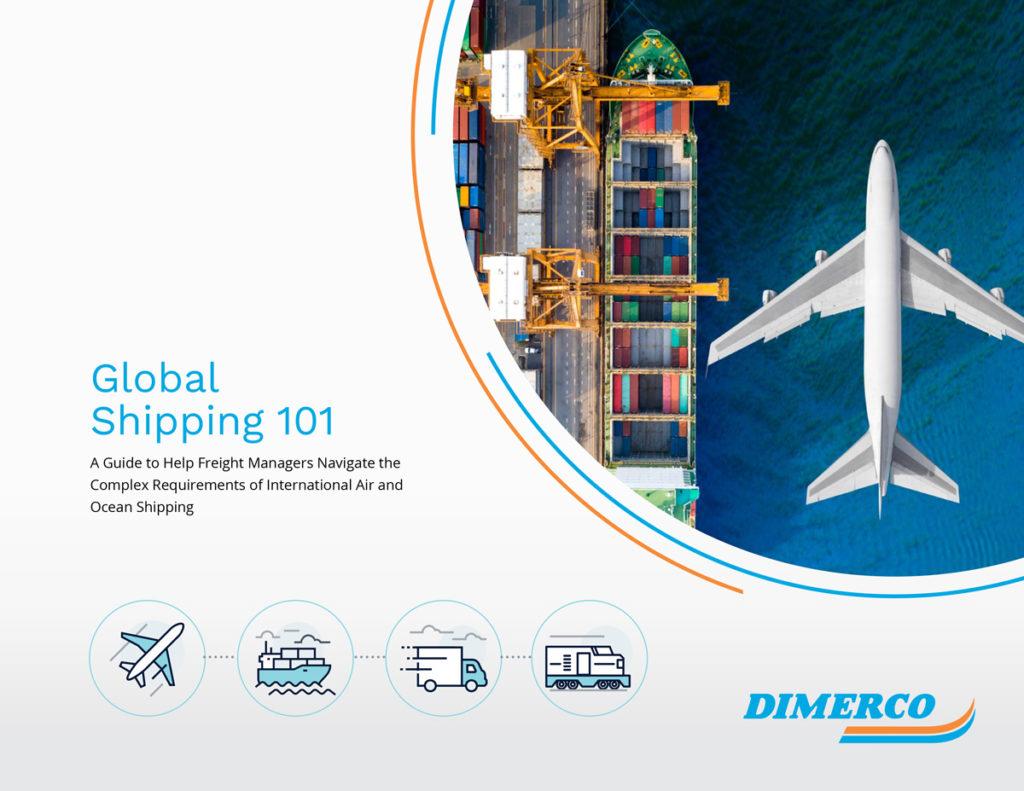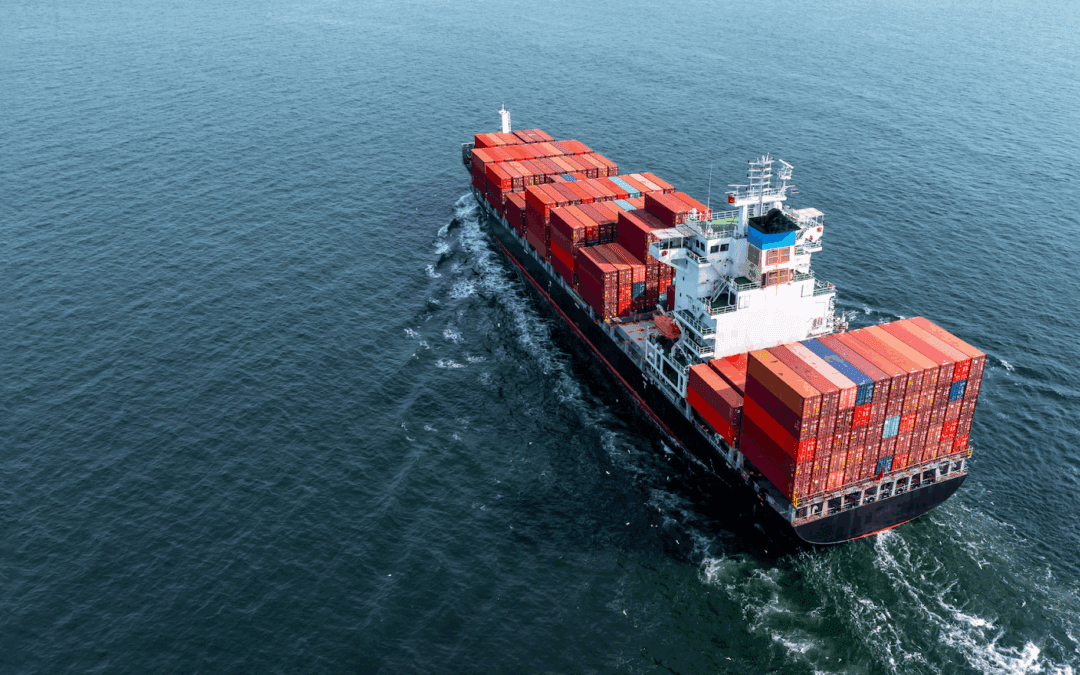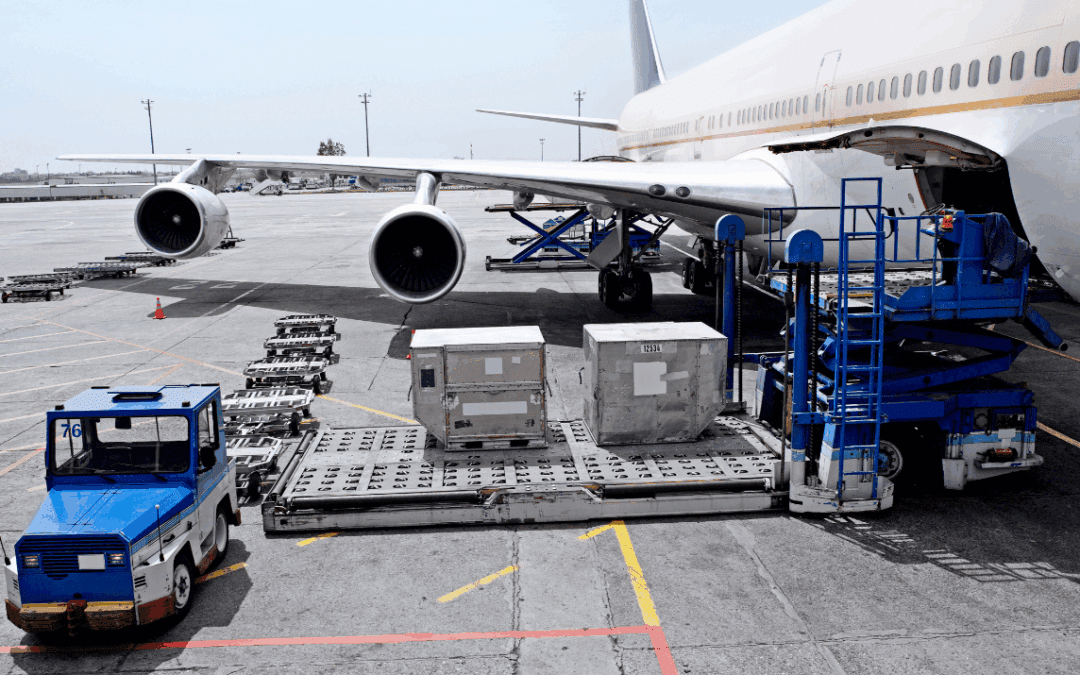Home »
Global Shipping Guide
The Complexity of Global Shipping
Navigating international freight can be daunting. From choosing the right transportation mode to managing customs clearance, each step requires careful planning. This guide aims to simplify the process for freight managers, logistics executives, and businesses looking to optimize their supply chain. Effective global shipping involves understanding key players, shipping modes, cost structures, and compliance regulations, all of which impact the efficiency and profitability of international trade.
Quick-Start Resources for Smarter Global Shipping
Before diving deeper, explore these essential resources that break down the fundamentals of customs clearance, shipping terms, trade compliance, and global freight strategy. Whether you’re new to international logistics or looking to fine-tune your current operations, these resources will give you a solid head start.
Find Out How to Navigate Customs Clearance
Discover How Incoterms Impact Costs, Risk, & Control
Learn the Trade Compliance Essentials
Understand the Major Players in International Freight
See How Freight Forwarding Experts Choose the Best Global Shipping Mode
Download Guide

Download Dimerco’s Global Shipping Guide — your go-to reference for navigating transportation modes, Incoterms, trade compliance, customs clearance, and more.
The Key Players in Global Freight
International freight involves several key players, each with distinct roles in the supply chain:
- Consignee: The recipient of the shipment and ultimate owner of the goods.
- Carrier: The entity responsible for operating the transport mode, whether by air, ocean, rail, or truck.
- Freight Forwarder: Acts as an intermediary, arranging transportation, handling documentation, and managing logistics from origin to destination.
- Freight Broker: Similar to a freight forwarder but typically focused on domestic shipments.
- Customs Broker: Specializes in customs clearance, ensuring compliance with import/export regulations.
- NVOCC (Non-Vessel Operating Common Carrier): Manages ocean freight shipments under their own house bills without operating their own vessels.
- Third-Party Logistics Providers (3PLs): Handle various logistics services, including transportation and warehousing.
- Fourth-Party Logistics Providers (4PLs): Oversee 3PLs and act as the single point of contact for shippers.
Understanding these roles helps businesses navigate international shipping more effectively. Successful freight management requires collaboration between these entities to ensure smooth customs clearance, cost efficiency, and timely delivery.
The Role of a Freight Forwarder
Freight forwarders are key orchestrators of international shipping, ensuring cost-effective and efficient transit. They negotiate freight capacity with carriers, manage documentation and compliance, mitigate risks through insurance and contingency planning, and coordinate multi-modal shipments for optimized delivery. While forwarders do not transport cargo themselves, they work closely with carriers to meet delivery schedules and cost expectations.
Businesses rely on freight forwarders to handle complex logistics processes, including route optimization, warehouse coordination, and ensuring compliance with international regulations. Their industry expertise allows them to provide customized solutions for different types of cargo, whether it’s time-sensitive, oversized, or hazardous goods. Working with a freight forwarder reduces the burden on internal logistics teams and enhances operational efficiency.
Choosing the Right Freight Forwarder
Selecting a freight forwarder requires evaluating several factors. Network strength is important, as a forwarder with a global presence and owned offices ensures consistent service. IT capabilities play a crucial role in providing seamless data integration and shipment tracking. Service flexibility is another consideration, as companies benefit from forwarders who can adapt to changing requirements and provide comprehensive logistics solutions. Finally, expertise in compliance is essential, as customs regulations vary by country, and a knowledgeable partner can help businesses avoid costly delays and penalties.
Shippers should also assess the forwarder’s reliability, transparency, and ability to manage supply chain disruptions. A forwarder with strong carrier relationships can secure freight capacity even during peak seasons or market fluctuations. Additionally, digital tools such as real-time tracking and automated documentation processing further enhance the efficiency of freight management.
Incoterms and Global Commerce
Incoterms define responsibilities between buyers and sellers in international transactions. There are 11 Incoterms, each specifying who covers transportation costs, insurance, and duties. Businesses should take control of their own freight to prevent unexpected delays and additional costs. Managing customs clearance effectively ensures goods move through ports without delay. Proper documentation in purchase orders reduces discrepancies and prevents misunderstandings between parties. Choosing the right Incoterm depends on the company’s cost objectives, time commitments, and risk tolerance.
Understanding Incoterms helps businesses minimize financial risks and optimize supply chain operations. For instance, terms like FOB (Free on Board) allow buyers to have more control over shipping, while DDP (Delivered Duty Paid) places full responsibility on the seller. Companies should evaluate their shipping agreements carefully to ensure alignment with their logistical and financial goals.
Choosing the Right Shipping Mode
Global shipping involves four main transportation options. Air freight is the fastest option and ideal for high-value or perishable goods, but it is also the most expensive. Ocean freight, while slower, is the most economical for bulk shipments. Rail freight offers cost-effective cross-border movement but has limited global accessibility. Truck freight provides flexibility for regional transport but can face congestion and capacity constraints.
Sometimes, combining multiple modes offers the best solution. Multi-modal shipping, such as air freight to a hub followed by trucking for last-mile delivery, balances speed and expense effectively. Companies should evaluate the urgency of their shipments, transportation costs, and sustainability goals when selecting the best mode.
Understanding Freight Costs
Several factors influence international shipping costs. Weight and volume calculations impact air freight pricing, which often uses volumetric weight charges. Ocean freight costs depend on whether the shipment is full-container load (FCL) or less-than-container load (LCL). Additional accessorial fees, such as fuel surcharges, handling fees, and customs duties, can also affect the final shipping cost. Contract terms play a role in securing long-term favorable rates with forwarders and carriers.
Freight marketplaces and digital platforms offer instant price comparisons, but businesses must consider service quality and hidden fees. Establishing long-term partnerships with reliable freight providers can lead to better-negotiated rates and priority shipping options.
The Importance of Cargo Insurance
Many shippers assume carrier liability provides sufficient coverage, but this is often inadequate. Without proper insurance, losses due to theft, damage, or natural disasters may not be reimbursed fully. All Risk Cargo Insurance is the best option, as it covers the full value of goods in transit. Businesses that frequently engage in global shipping should prioritize securing comprehensive coverage to mitigate financial risks.
General Average is another critical concept in maritime shipping. If an emergency occurs on a vessel, all cargo owners may be required to share the costs of loss or damage. Having adequate insurance ensures that businesses are protected from unexpected financial burdens.
Customs Compliance and Trade Regulations
Ensuring compliance with customs regulations is essential to avoid delays and penalties. Proper classification of goods using accurate HS Codes determines duty rates and regulatory requirements. Declaring the correct product valuation prevents under- or over-payment of duties. The country of origin also plays a crucial role in determining applicable tariffs and trade agreement benefits. Importers must adhere to these regulations to ensure seamless customs clearance and avoid fines.
Regulatory changes, such as new trade agreements or tariffs, can impact global shipping costs and delivery times. Companies should stay informed about evolving policies and work with customs brokers to ensure smooth clearance. Digital customs management tools can further streamline the process and reduce compliance risks.
Optimizing Global Supply Chains
Beyond logistics management, businesses should integrate supply chain strategies that enhance efficiency. Technology integration through AI-powered tracking and real-time data improves decision-making. Proactive freight planning, including diversifying carriers and transport modes, helps reduce risks from capacity shortages. Strategic partnerships with experienced 3PL providers ensure a smoother logistics process with reliable transportation and compliance expertise.
Supply chain resilience is essential in today’s volatile market. Businesses should develop contingency plans for disruptions, invest in alternative routing strategies, and leverage data analytics to optimize inventory levels. The goal is to create a flexible and responsive supply chain that can adapt to global challenges.
Final Thoughts on Navigating the Complexities of Global Shipping
Global shipping is complex but manageable with the right knowledge and partners. By understanding logistics providers, transportation options, cost structures, and compliance requirements, businesses can optimize their supply chains and facilitate seamless international trade. Dimerco’s expertise in freight forwarding, customs brokerage, and supply chain consulting helps businesses navigate the intricacies of global shipping. If you need a logistics partner to streamline your operations, reach out to Dimerco today.
With the rapid evolution of supply chain technology and international trade dynamics, staying informed and proactive is the key to success in global shipping. Whether through innovative logistics solutions, digital transformation, or strategic partnerships, businesses can enhance their competitiveness and achieve greater operational efficiency in the ever-changing global market.
Download Guide

Download Dimerco’s Global Shipping Guide — your go-to reference for navigating transportation modes, Incoterms, trade compliance, customs clearance, and more.
Glossary
3PL: An outside company that moves or stores freight between the origin and destination.
4PL: Companies that manage 3PLs and serve as the “orchestrator” of a shipping and logistics process.
Bill of Lading (BOL): a legally binding agreement between the shipper and the transportation provider.
Block Service Agreements (BSAs): Pre-purchased airline cargo space that forwarders book well before they have customers for that space.
Bulk Unitization Program (BUPs): ULDs built by a forwarder and sent, as readyto- ship units, to the airline
Carrier: The actual company operating the ship or plane or truck.
Certificate of Origin: Certifies that goods were manufactured or processed in a particular country.
Certified Cargo Screening Program (CCSP): Allows shippers to avoid long waits at airport Customs facilities by having a qualified forwarder with BUP capability build ULDs and pre-screen the cargo.
Commercial Invoice: The proof of sale between a seller and a buyer which is used as a customs document by the exporter or importer.
Consignee: The recipient of the cargo being shipped.
Customs Broker: Professional who processes import or export customs paperwork and submits the documents directly to Customs.
Freight Broker: A firm that represents shippers by arranging transport – typically associated with domestic transportation.
Freight Forwarder: A firm that represents shippers by arranging transport and completing documentation required for international shipping.
Freight Marketplaces: Online freight booking portals – the cargo equivalent of Expedia and Priceline.
Full Container Load (FCL): Cargo that occupies the full size of a container.
General Average: a maritime law that allows a vessel to jettison certain cargo in order to save lives, the vessel or other cargo.
HS Code: Determines the cargo and how much it will cost to clear customs.
Importer of Record (IOR): The business or individual responsible for compliance with all laws and regulations that apply to imports.
Incoterms: Commercial selling terms between buyer and seller.
Less Than Container Load (LCL): Goods that can be consolidated with other cargo in a container.
Non Vessel Operating Common Carrier (NVOCC): A firm that offers the same services as an ocean carrier, but which does not own or operate a vessel.
Packing List: Contains the count, weight, measurement, and description of the cargo being shipped.
Revenue Ton (R/T): Calculated based on weight or size, whichever is greater.
Shippers Letter of Instruction (SLI): A detailed export shipment instructions summary for freight forwarders to follow.
Tariff Engineering: The process of altering products in such a way that duty benefits, such as a lower rate, applies at the time of importation.
Unit Loading Device (ULD): The air freight equivalent of the ocean container.



